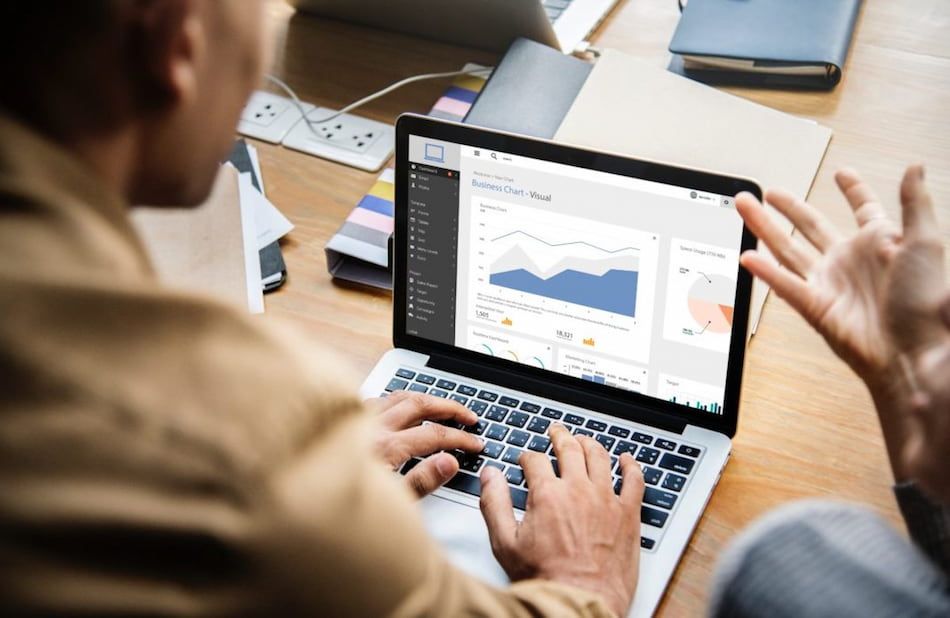
7 Must-Have Skills For Data Analysts

7 Must-Have Skills For Data Analysts
The majority of companies today realize the value of a data-driven business strategy and are in need of talented individuals to provide insight into the constant stream of collected information. Research shows that the demand for analysts will only grow as we continue to digitize our physical world. The U.S. Bureau of Labor Statistics predicts that the data analyst job market is expected to grow by 23 percent by 2031.
If you’re just starting your research and are wondering how to make the transition to a career in data analytics, you’re not alone. Scanning job postings for data-driven positions is a great starting point, but many analyst roles are highly nuanced, making it difficult to discern which skills are the most necessary to invest in.
At Northeastern, our analytics master’s programs have been designed to provide students with the specialized technical knowledge and combination of skills they need to not only thrive in their work but to land a top position in the field of data analytics.
Some of these top skills for data analysts include:
- Structured Query Language (SQL)
- Microsoft Excel
- Critical Thinking
- R or Python-Statistical Programming
- Data Visualization
- Presentation Skills
- Machine Learning
Here’s a closer look at the top seven must-have skills data analysts need to stay competitive and have a successful career.
Interested in a career in Analytics or advancing your Analytics career?
Learn more about our Master of Professional Studies in Analytics.
Essential Skills Needed To Be A Data Analyst
1. SQL
SQL, or Structured Query Language, is the ubiquitous industry-standard database language and is possibly the most important analytical skill for data analysts to know. The language is often thought of as the “graduated” version of Excel; it is able to handle large datasets that Excel simply can’t.
Almost every organization needs someone who knows SQL—whether to manage and store data, relate multiple databases (like the ones Amazon uses to recommend products you may be interested in,) or build or change those database structures altogether. Each month, thousands of job postings requiring SQL skills are posted, and the median salary for someone with advanced SQL skills sits well over $82,000. While even non-techies can benefit from learning this tool, if you’re looking to work with Big Data, learning SQL is the first step.
2. Microsoft Excel
When you think of Excel, the first thing that comes to mind is likely a spreadsheet, but there’s a lot more analysis power under the hood of this tool. While a programming language like R or Python is better suited to handle a large data set, advanced Excel methods like writing Macros and using VBA lookups are still widely used for smaller lifts and lighter, quick analytics. If you are working at a lean company or startup, the first version of your database may even be in Excel. Over the years, the tool has remained a mainstay for businesses in every industry, so learning it is a must. Luckily, there is an abundance of great free resources online to help you get started, as well as structured data analytics classes for those looking for a deeper understanding of the tool.
Pro Tip: Excel is limited with big datasets, so learning a statistical programming language is often another must as you move up in your career as an analyst.
3. Critical Thinking
Using data to find answers to your questions means figuring out what to ask in the first place, which can often be quite tricky. To succeed as an analyst, you have to think like an analyst. It is the role of a data analyst to uncover and synthesize connections that are not always so clear. While this ability is innate to a certain extent, there are a number of tips you can try to help improve your critical thinking skills. For example, asking yourself basic questions about the issue at hand can help you stay grounded when searching for a solution, rather than getting carried away with an explanation that is more complex than it needs to be. Additionally, it is important that you remember to think for yourself instead of relying on what already exists.
4. R or Python–Statistical Programming
Anything Excel can do, R or Python can do better—and 10 times faster. Like SQL, R and Python can handle what Excel can’t. They are powerful statistical programming languages used to perform advanced analyses and predictive analytics on big data sets. And they’re both industry standard. To truly work as a data analyst, you’ll need to go beyond SQL and master at least one of these languages.
So which one should you learn? Both R and Python are open source and free, and employers typically don’t care which their employees choose to use as long as their analyses are accurate. Since it was built specifically for analytics, however, some analysts prefer Rover Python for exploring data sets and doing ad-hoc analysis.
Pro Tip: Wondering about SPSS or SAS? Learning R or Python over these tools is considered best practice because, like Excel, SAS programs are limited.
5. Data Visualization
Being able to tell a compelling story with data is crucial to getting your point across and keeping your audience engaged. If your findings can’t be easily and quickly identified, then you’re going to have a difficult time getting through to others. For this reason, data visualization can have a make-or-break effect when it comes to the impact of your data. Analysts use eye-catching, high-quality charts and graphs to present their findings in a clear and concise way. Tableau’s visualization software is considered an industry-standard analytics tool, as it is refreshingly user-friendly.
6. Presentation Skills
Data visualization and presentation skills go hand-in-hand. But presenting doesn’t always come naturally to everyone, and that’s okay! Even seasoned presenters will feel their nerves get the best of them at times. As with anything else, developing these communication skills starts with practice—and then practice some more until you get into your groove. Forbes also suggests setting specific goals for your improvement and focusing on the audience rather than yourself as ways of getting more comfortable with presenting.
7. Machine Learning
As artificial intelligence and predictive analytics are two of the hottest topics in the field of data science, an understanding of machine learning has been identified as a key component of an analyst’s toolkit. While not every analyst works with machine learning, the tools and concepts are important to know in order to get ahead in the field. You’ll need to have your statistical programming skills down first to advance in this area, however. An “out-of-the-box” tool like Orange can also help you start building machine learning models.
Becoming A Data Analyst
Knowing which skills you’ll need to break into analytics and start working with data is key to advancing your data analytics career. Industries are buzzing about Big Data, and organizations are looking for hires with these in-demand, short-in-supply skills. Improving your data analytics knowledge today means more opportunity—and more money—for you in the future.
If you are serious about making this transition into an analytics career, there are many ways that you can develop these seven skills to help you reach your goal. How you ultimately decide to hone these abilities will depend on your existing background, the time and resources you are willing to commit, and your personal goals.
When starting out, it can be helpful for aspiring data analysts to take advantage of books and a wide range of free resources. Doing so can allow beginners to become more familiar with the terminology and build a strong foundation for future development. Those who are looking to make a more streamline move into the field, however, should look for opportunities to gain and practice the skills needed to become an expert data analyst.
One of the most efficient ways to do this is through formal education. Whether you choose to pursue online courses, bootcamps, or an advanced analytics degree, furthering your education can prepare you to thrive in this highly competitive field.
Northeastern University offers many degrees and certificates focused in this area, including a Master of Professional Studies in Analytics. This program has been strategically designed to prepare students for the analytics field by building a strong theoretical foundation and applying it to real-world industry issues.